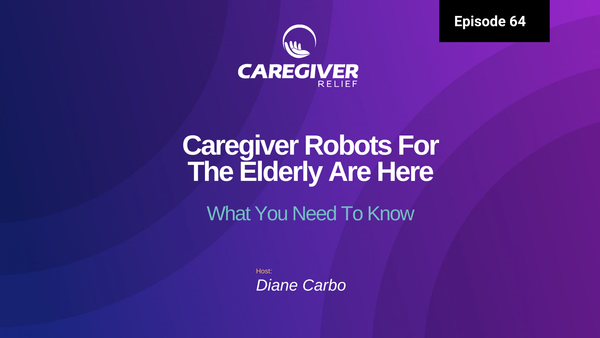How to Treat Depression?

Depression is a mood disorder, causing persistent sadness, loss of interest and feeling ""empty"". It can affect people of any age and has a huge impact on daily life. Experiencing depression can be extremely difficult and distressing, often leading to feelings of hopelessness and despair.
It is important to recognize the signs of depression and to understand that it is a real illness with serious consequences if left untreated. People who are struggling with depression should seek help and support in order to receive the appropriate treatment and get the best possible outcome. Treatment options for depression typically include therapy, medication, lifestyle changes, and self-help strategies.
By understanding what depression is and how it can be treated, we can improve our quality of life and reduce the stigma associated with this mental health condition. With the right support, compassionate care and commitment, it is possible to live a happy and fulfilling life despite living with depression.
Signs and Symptoms of Depression
People with depression experience a wide range of symptoms. Common signs and symptoms include:
- A persistent feeling of sadness or emptiness
- Loss of interest in activities that were once enjoyable
- Difficulty sleeping, excessive sleeping, or sleeping too little
- Weight fluctuations--gaining or losing weight without explanation
- Fatigue or low energy
- Feelings of worthlessness, guilt, or regret
- Difficulty concentrating or making decisions
- Thoughts of death or suicide
- Engaging in risky or self-destructive behaviors
It is important to remember that everyone experiences depression differently. Not everyone will experience every symptom listed above, and some people may experience symptoms not listed here. If you are experiencing any of these symptoms, it is important to seek help from a mental health professional.
Depression: Causes
Depression is a common mental health condition that affects people of all ages and backgrounds. It is important to understand the potential causes of this condition so that you can best identify and treat it in yourself, or in someone else.
There are many potential causes of depression, including biological, psychological, and social factors. On a biological level, some experts believe that there may be an imbalance in the brain’s chemistry that results in feelings of depression. For example, hormones like serotonin have been linked to depression and its symptoms. It is also believed that genetics can play a role in depression, as it can be passed down from one generation to another.
On a psychological level, depression can be caused by factors such as trauma, difficulty dealing with stress, or low self-esteem. These psychological issues can lead to negative thoughts and behaviors that contribute to the onset of depression. Additionally, stressful life events such as the death of a loved one, divorce, job loss, or illness can also trigger depression.
Finally, on a social level, depression has been linked to negative experiences with family or friends, bullying, or a lack of social support and connectedness. Furthermore, depression can also be caused by living in a society that promotes unrealistic expectations and perfectionism. This can lead to feelings of inadequacy or helplessness when individuals are unable to live up to these standards.
It is important to understand that any combination of these factors can contribute to depressive symptoms. While it is possible to experience depression without any identifiable cause, it is important to explore these causes in order to determine the best course of treatment.
Treatment Options For Depression
Depression is a serious medical condition that can have a profound effect on a person's mood, thoughts, behavior, and physical health. Finding the right treatment can help to reduce symptoms and significantly improve quality of life. Fortunately, there are several different options available for treating depression.
Therapy is one of the most common treatments for depression. It involves talking to a mental health professional, such as a psychologist or psychiatrist, about your feelings, thoughts, and behaviors. Therapy can help you learn new ways of thinking about yourself and help you to develop positive coping strategies. It can also help you to identify and address any underlying personal or environmental issues that may be contributing to your depression.
Medication is another effective option for treating depression. Antidepressants are a type of prescription medication that helps to balance out chemicals in the brain that contribute to mood disorders. Different types of antidepressants work in different ways, so it is important to work with a doctor to determine the best medication for your individual needs.
In addition to therapy and medication, lifestyle changes can help to manage symptoms of depression. Exercise, proper nutrition, adequate sleep, and increasing social interaction can all play a role in reducing symptoms. Additionally, avoiding alcohol and recreational drugs can help to minimize the effects of depression, as they can worsen symptoms and interfere with the effectiveness of other treatments.
Self-help Strategies
Along with professional treatment, there are many self-help strategies that people with depression can use to manage their symptoms. Exercise and maintaining a healthy diet can help to improve mood and increase energy levels. Other activities, such as meditation, yoga, journaling, and spending time in nature can also be beneficial. Additionally, engaging in creative activities like art, music, or writing can provide a sense of accomplishment and help to boost self-esteem.
Self-Help Strategies for Treating Depression
When it comes to treating depression, self-help strategies can be an important part of the equation. It is important to discuss these self-help strategies with a doctor or therapist before beginning any new regimen.
Self-help strategies can be divided into four main categories: exercise, diet, relaxation, and lifestyle changes.
Exercise: Exercise has been shown to reduce stress, anxiety, and depression. Regular physical activity can improve mood, aid in sleep, and help restore energy. Ideally, individuals should aim to get 30 minutes of moderate-intensity aerobic exercise on most days of the week.
Diet: Eating a balanced diet rich in essential vitamins, minerals, and proteins can be beneficial for managing depression. It is important to incorporate plenty of fruits and vegetables, as well as healthy sources of protein, into your diet. Furthermore, limiting processed foods, sugary snacks, and alcohol is recommended.
Relaxation: Relaxation techniques can be very beneficial for reducing depression symptoms. Examples include yoga, deep breathing exercises, progressive muscle relaxation, mindful meditation, and journaling. These techniques can help to reduce stress, as well as increase mental clarity and focus.
Lifestyle Changes: Adopting healthier habits overall can be beneficial for managing depression. This range from getting enough sleep, to making time for social activities, to maintaining a daily routine. Additionally, finding hobbies and activities that bring joy can help to improve mood and reduce depression.
Self-help strategies are just one component of treating depression. It is important to focus on other treatments as well, such as attending therapy or taking medication. If you find that you are struggling with depression, it is important to seek professional help from a doctor, therapist, or mental health professional.
Many people suffering from depression may find alternative approaches helpful in their treatment. Some of these approaches include self-help books, hypnotherapy, and mindful meditation.
Self-help books can provide valuable insight and guidance to those struggling with depression. These books are often written by mental health professionals and can provide meaningful insight into how to manage depression. Writing exercises, thought-provoking questions, and step-by-step advice can help individuals take control of their own mental health.
Hypnotherapy is a form of therapy that uses the power of suggestion to help people cope with difficult emotions. Through a process known as guided visualization, hypnotherapists lead people through relaxing scenarios in their minds that can help them face and come to terms with traumatic or challenging experiences.
Mindful meditation is another form of alternative therapy used to help people with depression. This practice involves focusing on the present moment and allowing thoughts and feelings to come and go without judgment. Mindful meditation can help people reduce distress and anxiety and improve their ability to cope with difficult emotions.
In addition to self-help books, hypnotherapy, and mindful meditation, there are several other alternative approaches that may be beneficial for people with depression. These include aromatherapy, energy healing, art therapy, and music therapy. While more research is needed to definitively prove the effectiveness of these alternative treatments, many people have found them to be helpful in managing symptoms of depression.
Ultimately, it is up to the individual to decide which types of alternative therapies are the most beneficial for them. Taking time to explore all available options can help people with depression make informed decisions about their mental health.
Professional Assistance
When you are struggling with depression, seeking professional help may feel intimidating. It is important to remember that there are many forms of professional assistance available and these can be highly beneficial for managing depression. The three main types of professional assistance include psychiatry, psychology, and group therapy.
Psychiatry
A psychiatrist is a medical doctor who has specialized training in diagnosing and treating mental illness. Psychiatrists are able to diagnose and treat a wide range of mental health conditions, including depression. In addition to providing medication, they can also provide talk therapy or refer patients to other professionals. Many psychiatrists offer online or telephone sessions for those who cannot make it to an appointment in person.
Psychology
Psychologists are mental health professionals who specialize in understanding and treating psychological issues. They are trained to evaluate the psychological and emotional wellbeing of patients and provide evidence-based treatments such as cognitive behavioral therapy (CBT) and interpersonal therapy (IPT). Psychologists typically focus on helping people make lifestyle changes and develop skills to cope with their depression.
Group Therapy
Group therapy is a form of therapy in which a small group of people meet with a therapist to discuss and work through issues related to depression. Group members can support each other and learn from one another’s experiences. Group therapy can be a helpful way to process feelings and reduce the sense of isolation often associated with depression.
These are just a few examples of professional assistance available to individuals struggling with depression. Other forms of professional help, such as art therapy and family therapy, may also be beneficial depending on the individual’s specific needs.
Helping Loved Ones with Depression
When someone close to you is suffering from depression, it can be difficult to know how to help. But providing support to a loved one with depression can be incredibly meaningful and rewarding.
One of the most important things you can do for someone with depression is to listen non-judgmentally. Offer your love and understanding, while giving your loved one the space to express their feelings. It’s also important to be patient and encouraging – sometimes people take longer than expected to heal from depression.
Help around the house can also make a difference: cooking meals, tidying up, or helping out with chores can take some of the pressure off of your loved one. Additionally, you can assist them in finding medical attention, such as a psychiatrist or therapist. Helping them access appropriate treatment and And staying in touch is also important – make sure to reach out regularly, and check in to see how they’re doing.
When it comes to lending a helping hand, each person’s situation is unique. Show sensitivity to their needs and listen carefully to understand what kind of help would be most supportive.
Ultimately, it’s essential to offer love and understanding to those experiencing depression, and to stay available for emotional support. While it’s not always easy, it can make a world of difference.
Reducing Stigma Related to Depression
There is still a lot of stigma and misunderstanding surrounding depression. As a result, many people with depression feel ashamed or embarrassed to talk about their condition publicly. That lack of support can make it more difficult to get the help and treatment they need.
It is important to recognize that depression is a real medical condition, not a sign of weakness or personal failure. It is important to understand that depression is treatable and that there are many resources available to help people with depression.
One important way to reduce the stigma associated with mental health conditions, such as depression, is to be an effective advocate for those affected by the condition. Being an advocate means actively supporting those around you who have depression. This means listening to and understanding their experiences, understanding the different treatments and therapies that are available, and providing emotional support.
It is also important to be aware of the language used when talking about depression. Using labels such as “crazy” or “mentally ill” can perpetuate negative stereotypes and stigma. Instead, use terms like “person with depression” or “affected by depression” which are less stigmatizing.
It is also important to educate yourself and others on the signs and symptoms of depression as well as available treatments and resources. Making sure accurate information about depression is widespread can help to reduce stigma and encourage people who are suffering to seek help.
Many individuals with depression feel overwhelmed and isolated, which is why seeking support from resources outside of traditional mental health treatment can be beneficial. Support groups can be especially helpful, as they provide a safe and affirming space for people to share their experiences with one another. Online communities are another great resource, and allow those suffering from depression to connect with others who have experienced similar struggles. In addition, there are a variety of podcasts that offer advice, tips, and stories related to depression, which can be listened to from the comfort of your own home.
These resources can help people with depression feel more connected and informed about their condition. At the same time, it is important to keep in mind that these are not replacements for professional treatment. If someone is struggling with severe depression, it is best to seek professional help from a mental health practitioner.
Depression can affect anyone regardless of age, gender, and background. It is essential to recognize the signs and symptoms of depression and take action in treating it. There are many forms of treatment available, from medication to lifestyle changes, as well as self-help strategies and alternative approaches. Professional assistance is also available for those experiencing depression and it is important that loved ones offer support as well. Reducing stigma related to depression is also crucial. This guide has discussed the various treatments and support options available for individuals with depression, and has identified helpful resources for readers. It is important to remember that recovery from depression can take time and requires dedication and support from family and friends. With the right help and treatment, it is possible to manage depression and enjoy life once again.
References/Resources
If you’re looking to explore more resources about depression, there are numerous websites and books available that can help provide additional information. Some reputable websites that can be consulted include:
- Mental Health America: www.mentalhealthamerica.net
- NIMH: www.nimh.nih.gov
- Depression and Bipolar Support Alliance: www.dbsalliance.org
For books, there are a range available on the topic of depression, with different views and perspectives. Some noteworthy titles include:
- Feeling Good: The New Mood Therapy by David D. Burns
- The Mindful Way Through Depression by Mark Williams and John Teasdale
- Unmasking Male Depression by Archibald Hart
By taking time to explore the different resources available, individuals can gain more knowledge and insight on how to effectively treat depression.




